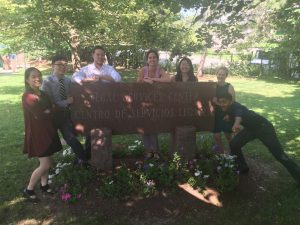
My name is Chaeree, and I am a junior political science major and a prospective law school applicant. This summer, I interned at the Legal Services Center (LSC) of Harvard Law School, the school’s largest clinical placement, which provides direct legal services to hundreds of low-and-moderate income residents in the Greater Boston area each year. The clinic that I mainly assisted, The Safety Net Project, plays a vital community role by providing legal assistance to clients contesting the denial of Social Security benefits.
Over 70% of applicants of Social Security are estimated to be legally unrepresented, and those clients without representation are denied benefits over 75% of the time. Without legal representation, many truly disabled individuals cannot provide evidence of their eligibility for the very benefits intended to assist them. By providing legal assistance to help this population at Boston community, The Safety Net Project is actively addressing an enormous unmet legal need and contributing to stabilization of the individual and their families, preventing a deeper slide into poverty.
My main responsibilities at the LSC were to assist clinical professors, legal fellows, and law students in representing low-income clients in issues related to Social Security. I conducted client intakes by interviewing potential clients, directed them to professional instructors for further counseling, and drafted client correspondence. I also performed legal research to assist legal professionals, and I was given opportunities to be actually engaged in investigation, formal fact-discovery, and legal strategy formulation procedures.
Every client The Safety Net Project represent had serious health issues, and I was given frequent opportunities to interact with medical providers and medical experts and work on cases related to disability rights, disability access, and mental health. Through this experience, I learned the impact of law and social policy on the lives of clients from marginalized backgrounds, explored the ways the court system and administrative bureaucracies work, and interacted with legal professionals who deliver a positive and stable influence in community. I am truly glad that my time at the LSC has helped me to build upon my understanding of public interest law, litigation process, and clinical services for the underrepresented community, which I have always been passionate about and envisioned as my future career.